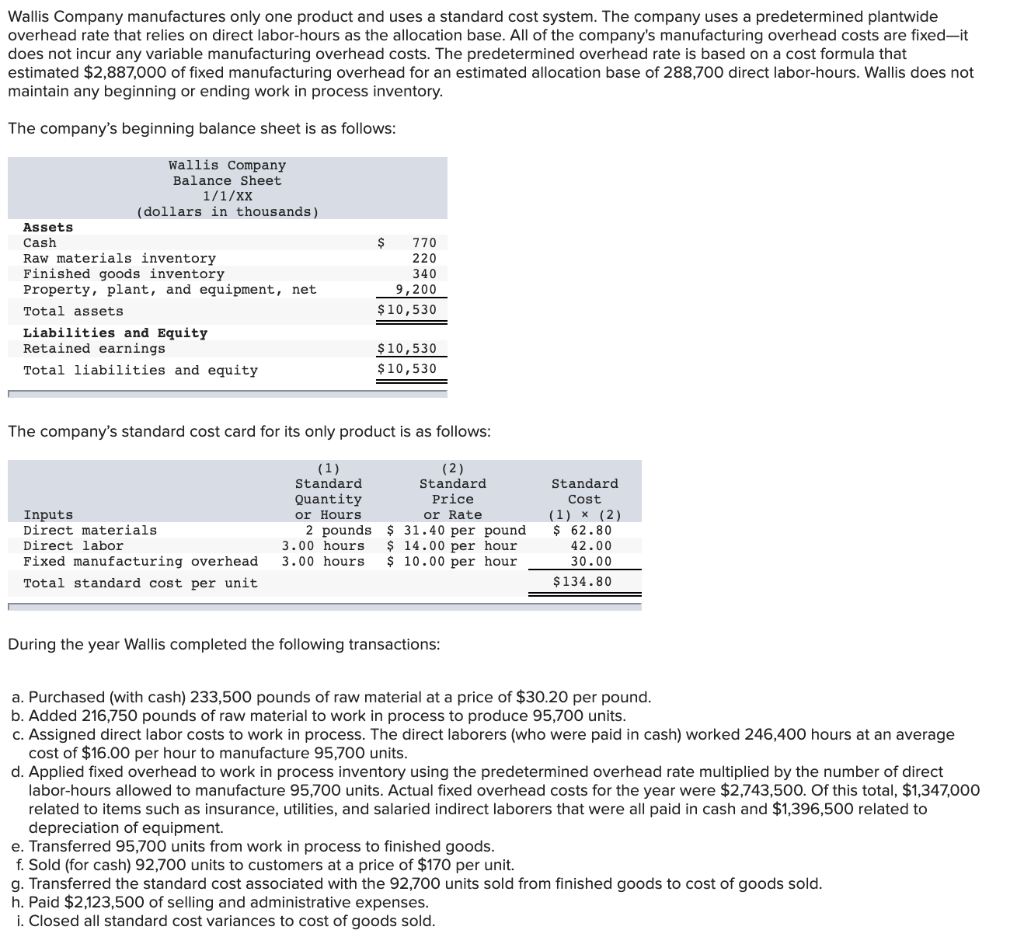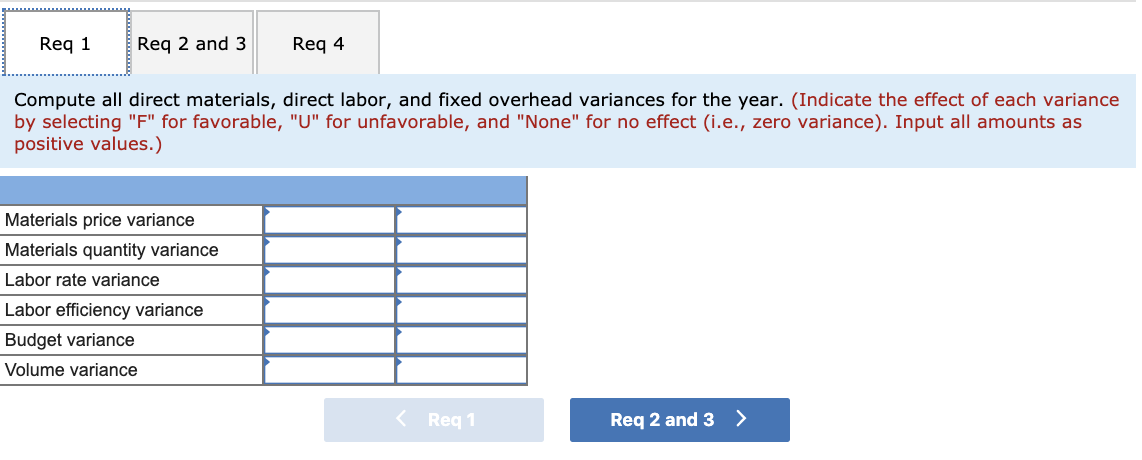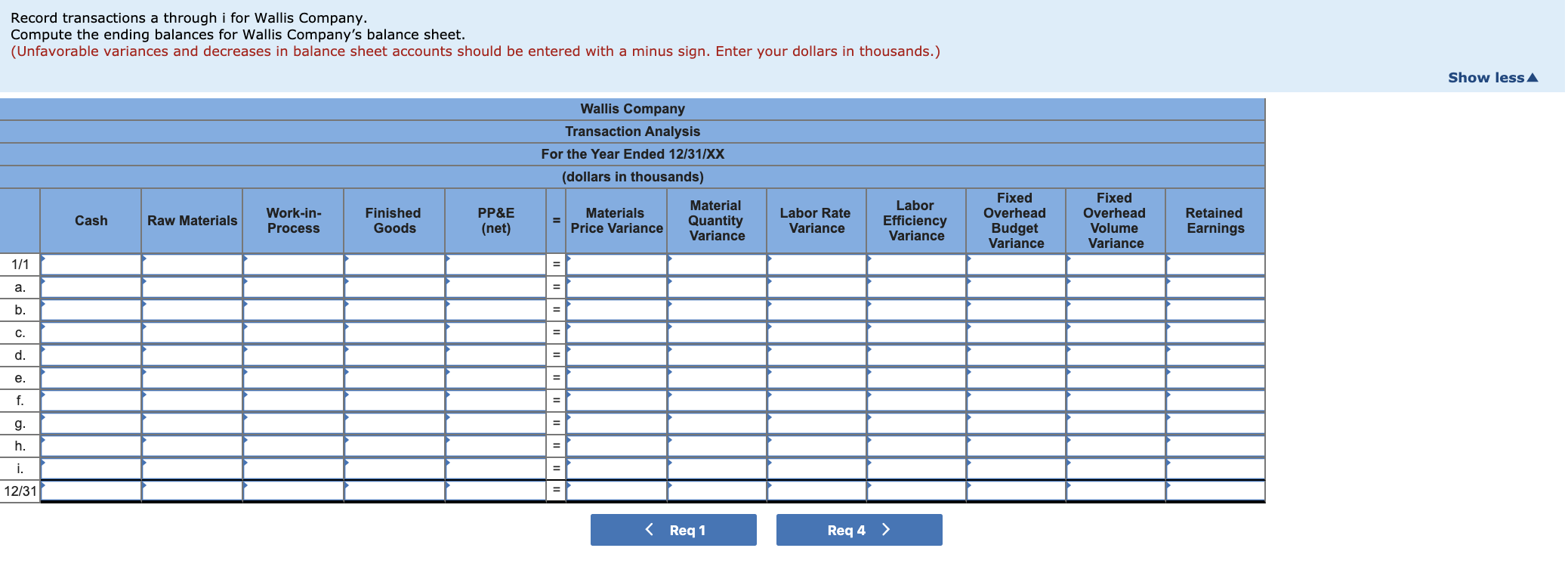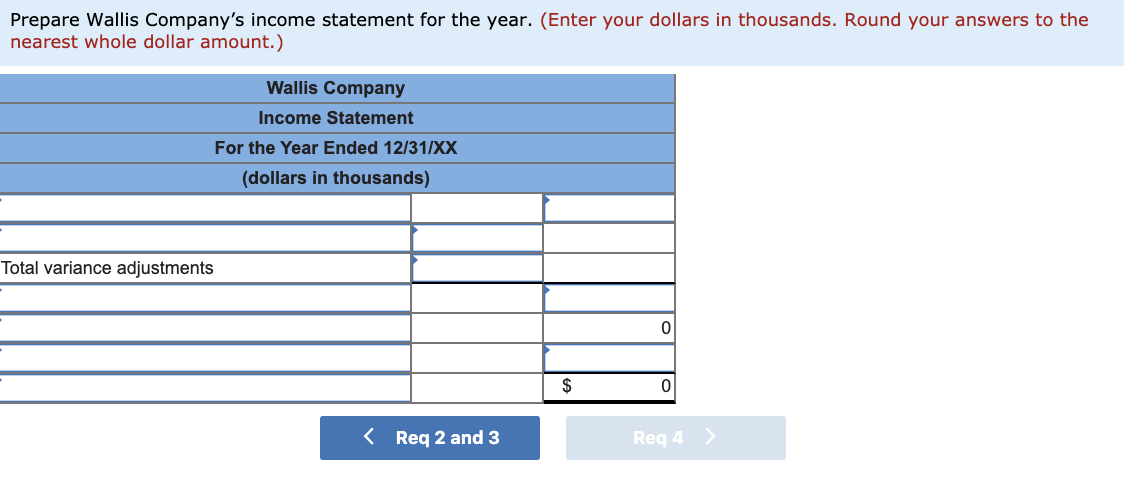



Wallis Company manufactures only one product and uses a standard cost system. The company uses a predetermined plantwide overhead rate that relies on direct labor-hours as the allocation base. All of the company's manufacturing overhead costs are fixed-it does not incur any variable manufacturing overhead costs. The predetermined overhead rate is based on a cost formula that estimated $2,887,000 of fixed manufacturing overhead for an estimated allocation base of 288,700 direct labor-hours. Wallis does not maintain any beginning or ending work in process inventory. The company's beginning balance sheet is as follows: Wallis Company Balance Sheet 1/1/xx (dollars in thousands) Assets Cash Raw materials inventory Finished goods inventory Property, plant, and equipment, net Total assets Liabilities and Equity Retained earnings Total liabilities and equity $ 770 220 340 9,200 $ 10,530 $ 10,530 $ 10,530 The company's standard cost card for its only product is as follows: Inputs Direct materials Direct labor Fixed manufacturing overhead Total standard cost per unit (1) (2) Standard Standard Quantity Price or Hours or Rate 2 pounds $ 31.40 per pound 3.00 hours $ 14.00 per hour 3.00 hours $ 10.00 per hour Standard Cost (1) X (2) $ 62.80 42.00 30.00 $ 134.80 During the year Wallis completed the following transactions: a. Purchased (with cash) 233,500 pounds of raw material at a price of $30.20 per pound. b. Added 216,750 pounds of raw material to work in process to produce 95,700 units. C. Assigned direct labor costs to work in process. The direct laborers (who were paid in cash) worked 246,400 hours at an average cost of $16.00 per hour to manufacture 95,700 units. d. Applied fixed overhead to work in process inventory using the predetermined overhead rate multiplied by the number of direct labor-hours allowed to manufacture 95,700 units. Actual fixed overhead costs for the year were $2,743,500. Of this total, $1,347,000 related to items such as insurance, utilities, and salaried indirect laborers that were all paid in cash and $1,396,500 related to depreciation of equipment. e. Transferred 95,700 units from work in process to finished goods. f. Sold (for cash) 92,700 units to customers at a price of $170 per unit. g. Transferred the standard cost associated with the 92,700 units sold from finished goods to cost of goods sold. h. Paid $2,123,500 of selling and administrative expenses. 1. Closed all standard cost variances to cost of goods sold. Req 1 Req 2 and 3 Req 4 Compute all direct materials, direct labor, and fixed overhead variances for the year. (Indicate the effect of each variance by selecting "F" for favorable, "U" for unfavorable, and "None" for no effect (i.e., zero variance). Input all amounts as positive values.) Materials price variance Materials quantity variance Labor rate variance Labor efficiency variance Budget variance Volume variance Record transactions a through i for Wallis Company. Compute the ending balances for Wallis Company's balance sheet. (Unfavorable variances and decreases in balance sheet accounts should be entered with a minus sign. Enter your dollars in thousands.) Show less Wallis Company Transaction Analysis For the Year Ended 12/31/XX (dollars in thousands) Cash Raw Materials Work-in- Process Finished Goods PP&E (net) Materials Price Variance Material Quantity Variance Labor Rate Variance Labor Efficiency Variance Fixed Overhead Budget Variance Fixed Overhead Volume Variance Retained Earnings 1/1 a. 12/31 Prepare Wallis Company's income statement for the year. (Enter your dollars in thousands. Round your answers to the nearest whole dollar amount.) Wallis Company Income Statement For the Year Ended 12/31/XX (dollars in thousands) Total variance adjustments










